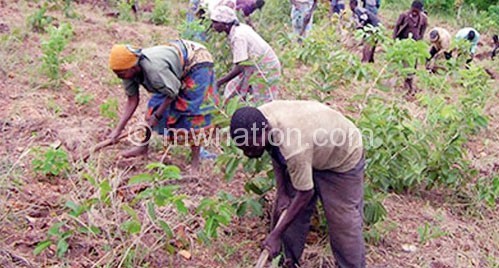Scientist urges Malawi to adopt climate change strategies

An American Scientist Rachel Bezner Kerr has predicted a grim future for Malawi’s agriculture sector if climate change adaptation strategies are not relayed to farmers as soon as possible.
Speaking on the sidelines of the presentation of the findings of a report titled Farmers Led Climate Change Adaptation, Strategies to Improve Food Security and Nutrition in Lilongwe, Kerr said climate change is real and farmers might be hit hard due to the unpredictable patterns of rainfall.
Said Kerr: “With climate change, there is need for government to up-scale relaying of messages to farmers and implement strategies that can help farmers mitigate the impact of this global phenomenon which is looming. The predictions in the agricultural sector are very grim if efforts are not being undertaken to make sure that farmers know what kind of crops to plant in a particular area.”
Kerr who is an assistant professor at Cornell University College of Agriculture and Life Sciences said they partnered with the Lilongwe University of Agriculture and Natural Resources (Luanar) to teach farmers in Ekwendeni other parts of the country to plant nitrogen fixing crops which have got high value when consumed or sold.
“You do not have to be an experienced farmer to grow legumes because they are easier to take care of. The advantage with legumes is that they fix nitrogen in the soil and with a little manure the harvests are always substantial,” said Kerr.
She disclosed that with crops such as soya beans and groundnuts farmers can improve the nutrition of their families and it important that government must scale up projects like this one by helping in the setting up of climate change groups.
Luanar vice-Chancellor Professor Kanyama Phiri, said they participated in the research on how to mitigate the impact of climate change because it can help to improve the lives of farmers by improving food security at household level.
“With the research we have discovered that farmers can be able to grow legumes both for consumption and commercial purposes with minimal resources. We have discovered that under farm-led experiments, nitrogen fixing plants grown in the same field as maize can substantially improve yields,” said Kanyama.
He disclosed that the project started in Ekwendeni as a pilot phase but other trials have been conducted research in Ntcheu, Kasungu and Mangochi.
“We want to help many farmers to start using organic manure because fertiliser is expensive. With organic manure the soil texture is improved and the yields are also very high and through such practices we can end household poverty,” said Kanyama.
One of the farmers who participated in the trials, Samuel Mtika from Katema Farmer Club in Traditional Authority (T/A) Simulemba in Kasungu, said nutrition in his home has improved greatly because of legumes like soya.
“We no longer rely on fertiliser and we are now planting legumes which are a high source of proteins. Even when the rains are erratic our soils do not easily dry and the crops normally do well,’ said Mtika.




